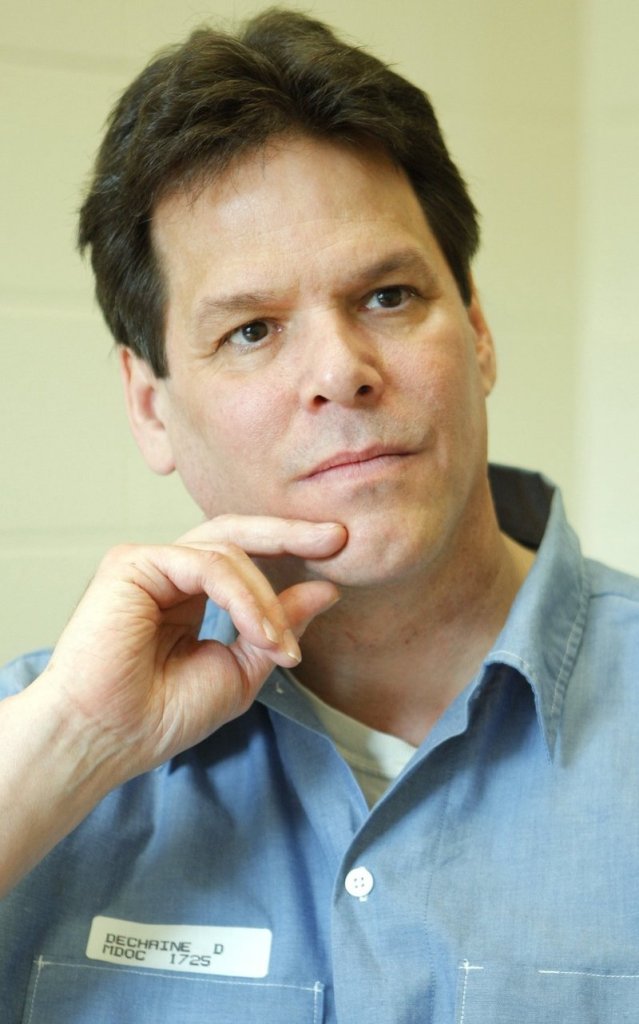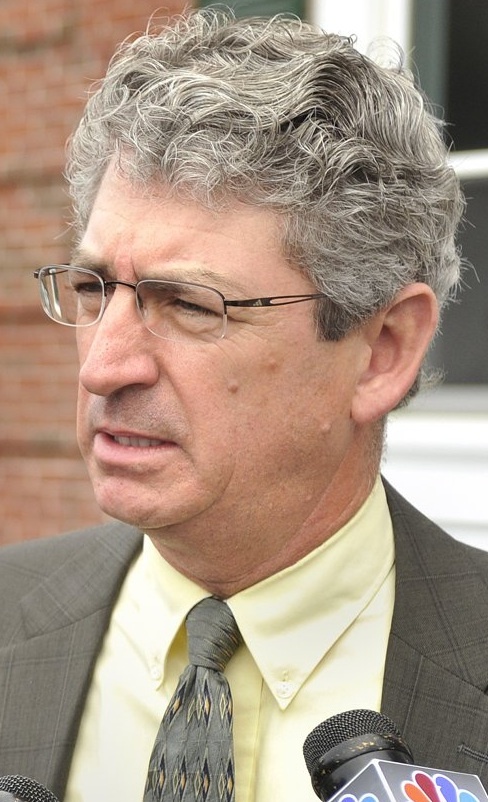PORTLAND — A judge has ordered the state’s crime lab to compare a partial DNA profile — collected from the thumbnail of a 12-year-old murder victim in 1988 — against Maine’s database of 21,000 DNA samples from convicted felons.
Friday’s ruling by Justice Carl O. Bradford in Cumberland County Superior Court was seen as a rare legal victory for Dennis Dechaine, the Bowdoinham farmer convicted of kidnapping and murdering Sarah Cherry.
Dechaine’s lead defense attorney, Steve Peterson of Rockport, requested the DNA database comparison as part of Dechaine’s latest bid for a new trial.
“To say we’re pleased is an understatement,” Peterson said after Bradford’s ruling.
The pending appeal, filed in 2008, is based on DNA evidence that was not available at the 1989 trial.
Analysts from the state crime lab and private labs examined part of Cherry’s thumbnail, which was clipped during her autopsy. The labs discovered a partial, mixed DNA profile that was consistent with Cherry and at least one other person, an unknown male. The sample was not a match for Dechaine.
Peterson contends that the fragment of DNA belongs to the real killer. When the defense team receives the list of partial hits from the state’s offender database, private investigators will begin vetting those individuals for possible involvement in the crime.
The names will only be shared with the state and the defense, and will be subject to a gag order by the court to prevent them from being made public.
Prosecutors say the DNA could have come from anyone during incidental contact before Cherry died, or from nail clippers during the autopsy. They have no doubts that Dechaine strangled and stabbed the 12-year-old.
Cathy MacMillan, an analyst from the state crime lab, was the single witness at the motions hearing Friday. She said the DNA from the thumbnail was “low-level,” “degraded” and contained less than half the genetic information of a full profile. It would be impossible to make a conclusive match of the sample to anyone, MacMillan testified.
At best, the sample can be used to generate a list of possible matches, which would encompass a small percentage of the public, she said.
In 2003, MacMillan ran the thumbnail DNA through the state’s offender database, which at that time contained about 4,000 samples. The search returned eight names of people who shared at least one DNA allele with the thumbnail sample.
MacMillan said she conducted further examination of all eight full DNA profiles, and she excluded those people as potential donors to the mystery DNA.
An analyst at a private laboratory in Texas, hired by the defense, disagreed with MacMillan’s findings. The analyst from Orchid Cellmark in Texas believes the eight individuals cannot be definitively excluded.
Peterson expects to receive the list of those eight names soon, and then any additional names after the new database comparison is finished.
MacMillan estimated that the comparison ordered Friday will likely produce another 80 to 100 partial matches to the thumbnail sample.
William Stokes, head of the criminal division at the state Attorney General’s Office, argued against the new comparison.
“Basically you’re on a wild goose chase,” Stokes said.
He said it’s unfair and serves no purpose to rope dozens of people into the case, simply because they have a fraction of DNA in common with a sample that the crime lab claims is not reliable to begin with.
“It’s dangerous” for the state to go down that route, he said.
Also Friday, Bradford denied Peterson’s motion requesting that he recuse himself from the case. Peterson argued that because Bradford had not allowed DNA testing before the 1989 trial, it would be hard for him to allow Dechaine a new trial based on DNA evidence.
“It is just very difficult for this court to sit objectively and decide whether or not it’s going to overrule itself 22 years later,” Peterson said. “A new judge could very easily be brought up to speed.”
Stokes noted that state law requires the original trial judge, if possible, to hear these types of appeals.
“There is no basis for you to recuse yourself,” Stokes told Bradford. “We value the fact that trial judges are the most experienced and most knowledgeable about the case.”
A date for the larger hearing, to decide whether a new trial should be granted, has not been set.
Cherry, a straight-A student at Bowdoin Central School, was kidnapped while baby-sitting on July 6, 1988. The mother who had hired her came home about 3:20 p.m. and found a notebook and a receipt bearing the name Dennis Dechaine in her driveway.
Police began a search for the missing girl and Dechaine. About five hours later, he was seen walking out of the woods about three miles north of the home.
Dechaine told police that he had been fishing and he couldn’t find his truck. He denied having anything to do with the girl’s disappearance. Later that night, police found his pickup truck on a discontinued logging road nearby.
A search team found the girl’s body about noon on July 8 near where the truck was found. She had been stabbed about a dozen times and strangled with a scarf. The scarf and the rope binding her wrists had come from Dechaine’s truck.
Dechaine says he went into the woods on July 6 to inject speed and wander around. He says he was alone the entire day, he got lost, and someone must have grabbed his papers, the rope and the scarf from his truck.
Staff Writer Trevor Maxwell can be contacted at 791-6451 or at:
tmaxwell@pressherald.com
Send questions/comments to the editors.




Comments are no longer available on this story